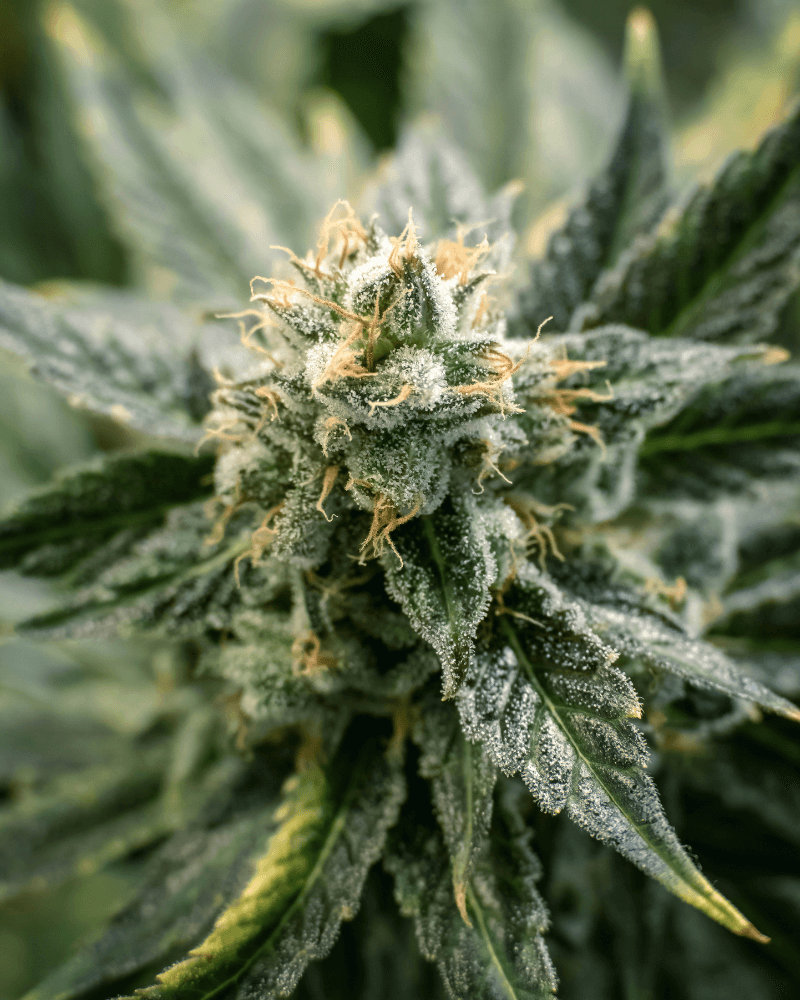What is hashish?
Hashish, often referred to simply as "hash", is a product of the cannabis plant and has a long history as a stimulant and remedy. But what exactly is hashish?
Basically, it is the resin extracted from the flowers and leaves of the cannabis plant. This resin contains a high concentration of THC (tetrahydrocannabinol), the psychoactive substance responsible for the "high". Hashish can come in various forms - from soft, sticky pieces to brittle, dry slabs. It can be smoked, vaporized or processed into edibles.
The use of hashish dates back to ancient times and was valued as an intoxicant in many cultures. Nowadays, it is a hotly debated topic in many parts of the world, especially in terms of legalization and medical applications.
Whether you're simply curious or want to learn more about the pros and cons, hashish is definitely a topic that has many faces. So let's dive deeper and explore the different aspects of this fascinating topic!
Physical effects of hashish
Hashish has a number of physical effects that you should be aware of:
1.acute effects: Immediately noticeable changes include a dry mouth (also called "cotton mouth"), reddened eyes, and an increased feeling of hunger, often referred to as "munchies." Sometimes there may also be an increased heart rate.
2.impaired motor skills: Consumption can slow your reaction times and impair coordination, which can be especially dangerous when driving or playing sports.
3.long-term consequences: Regular use can cause respiratory problems and weaken the immune system, which can make you more susceptible to illness.
4.physical withdrawal symptoms: With sudden cessation, symptoms such as sleep disturbances and physical discomfort can occur.
The physical effects of hashish are varied and can differ from person to person.
Next, let's take a look at the psychological effects of hashish!


Psychological effects of hashish
Hashish not only affects the body, but also the mind. Here are some important mental effects:
1.acute effects: Many users experience relaxation and euphoria, while others may experience anxiety or paranoia, especially with higher doses or little experience.
2.altered perception: colors and sounds can be perceived more intensely, which can be exciting, but can also be overwhelming.
3.long-term effects: Regular use can be associated with an increased risk of mental health conditions such as anxiety disorders, depression and in some cases schizophrenia.
4.cognitive impairment: Hashish can impair memory and concentration, which can make everyday life more difficult.
5Withdrawal symptoms: Mood swings and sleep disturbances can occur during withdrawal.
Mental effects vary from person to person, and it's good to be aware of how hashish can affect your mind.
Now let's look at the social effects of hashish!
Physical effects of hashish
Hashish has a number of physical effects that you should be aware of:
1.acute effects: Immediately noticeable changes include a dry mouth (also called "cotton mouth"), reddened eyes, and an increased feeling of hunger, often referred to as "munchies." Sometimes there may also be an increased heart rate.
2.impaired motor skills: Consumption can slow your reaction times and impair coordination, which can be dangerous when driving or playing sports.
3.long-term consequences: Regular use can cause respiratory problems and weaken the immune system, making you more susceptible to illness.
4.physical withdrawal symptoms: With sudden cessation, symptoms such as sleep disturbances and physical discomfort can occur.
The physical effects of hashish are varied and can differ from person to person.
Addictive potential of hashish
Hashish has a certain addictive potential that should not be ignored. Here are the most important points:
1.development of addiction: for some people, regular use can lead to addiction. It is estimated that around 9-10% of users develop an addiction. The rate is even higher for young people and people who start using at an early age.
2.physical and psychological withdrawal symptoms: When someone who is a regular user suddenly stops, withdrawal symptoms can occur. These include sleep disorders, irritability, anxiety and a general feeling of malaise.
3.development of tolerance: Over time, it may become necessary to consume higher quantities in order to achieve the same effect. This can further increase consumption and increase the likelihood of addiction.
4.influence on everyday life: An addiction can lead to life being determined by the drug. Relationships, school or work can suffer if consumption becomes a priority.
The addictive potential of hashish is therefore real, and it is advisable to be aware of how your own consumption patterns may develop.




